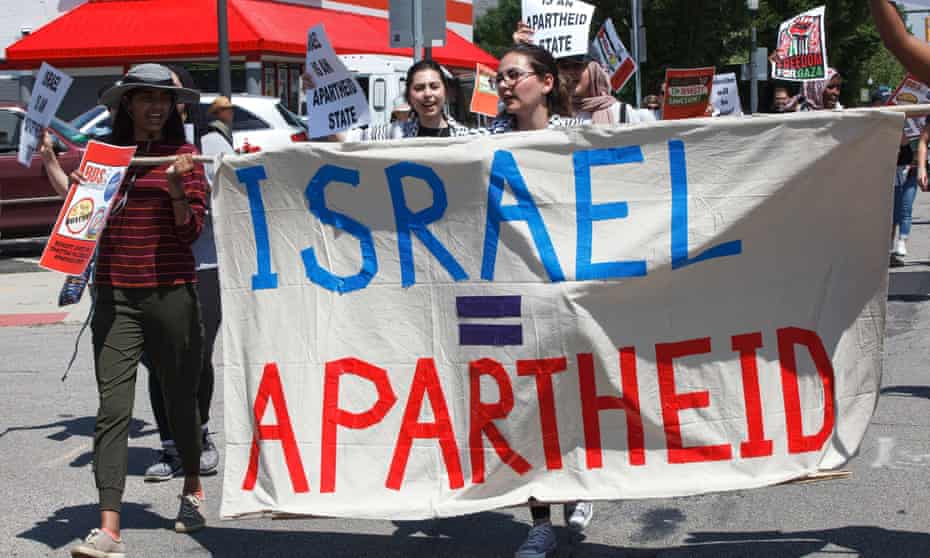The State of Israel vs The Jews review: fierce indictment of a rightward lurch
Sylvain Cypel, a French editor, writes with the passion of a convert, one betrayed by the faith in which he was raised

S
The author is a prominent French newspaper editor and foreign correspondent who lived in Israel for 12 years, trained there to be a youth movement leader and even served in a paratroop brigade after being drafted.
Cypel writes with the passion of the convert: someone who believes he has been betrayed by the faith in which he was raised. His father was also a journalist, the editor of France’s Yiddish-language daily, Unzer Wort, and the main leader of labor Zionism in France for a quarter of a century. Cypel was very close to his father, but Zionism ultimately became the “unbridgeable hiatus” between them.
“It had been his whole life and it was mine no longer,” he writes.
Cypel argues that the country originally seen as an embattled David menaced by a constellation of Goliaths has evolved since the six-day war, into something “no idealist could stomach: a racist, bullying little superpower”.
His accusations carry particular power because of the nationality of his sources: nearly all are Israeli journalists, intellectuals and activists. But there is a paradox which Cypel mostly glides over: the provenance of all this criticism is also potent evidence of the continuing vitality of Israeli democracy. It would be impossible to write a book like this, relying almost entirely on the testimony of resident citizens and especially journalists, about Saudi Arabia, Egypt or even Jordan.
That’s one reason why Israel’s supporters still describe it as the only democracy in the Middle East – a description Cypel rejects.
Although the accusation of apartheid has gained much more currency in the last couple of years, it was almost 20 years ago when Cypel first heard the case for it. It came in an interview he conducted with Michael Ben-Yair, who was Israel’s attorney general in Yitzhak Rabin’s second government. Ben-Yair believed the essential tenet of Zionism had been violated.
“The object of Zionist thinking was never the domination of another people,” he said.
“We are committing crimes that fly in the face of international law and public morality. The moment a power establishes two different legal systems, one democratic and liberal, and the other repressive and cruel, that’s where apartheid starts … Where an army defends the property of the one and destroys that of the other … there is no other term to define the situation except apartheid.”
Cypel begins his prosecution by quoting an assortment of headlines from a six-month period in 2018 and 2019:
Israeli border policewoman arrested on suspicion of shooting Palestinian for fun
Israel said a Palestinian was killed in clashes. A video shows he was shot in the back
The disabled Palestinian slowly walked away. Then Israeli troops shot him in the back of the head
After shooting a Palestinian teen, Israeli troops dragged him around – and chased an ambulance away
The headlines are bolstered by horrific statistics. Yesh Din, a human rights organization, studied 1,163 complaints to police from Palestinians who said they were victims of violence by settlers. During the 12 years that were examined, the share of complaints referred for prosecution was 1.9%; 91% of the investigations were closed without charges being brought. Out of 1,163 complaints, three went to trial.
Amira Hass, a West Bank correspondent for Haaretz, wrote that by systematically shooting “young unarmed Gazans … Israel is conducting a mass psychological experiment in Gaza”. But the “guinea pigs are actually the Israelis. How far will their society go in its acquiescence? The experiment is about compliance and cruelty.”
Hass compared the process to the notorious Stanley Milgram experiments conducted at Yale in the early 1960s, when subjects were asked to press a button that sent increasingly powerful electric shocks to a person each time he or she gave the wrong answer to a question.
All of these anecdotes explain Cypel’s relentless pessimism about Israel, which he calls “a society blindly turning inward as it drifts toward disaster”.
“Israel seems to have no sense of what within it could avert that disaster, or who would do it,” he writes. “Does Jewish society have what it takes to resist the current that is carrying it? The answer has to be no.”
Cypel’s book is also replete with the voices of virtuous Israelis who remain determined to put their country on a different course. But while the “ultras” who dream of expelling every Arab “aren’t yet dominant in Israeli society”, he writes, “they are its most determined segment”.
In a long section about the Jewish diaspora, Cypel points out that Israel’s lurch to the right has produced a growing gap with the liberal traditions of American Jews in the Reform movement. No one has written more powerfully on this subject than Daniel Boyarin, a scholar of the Talmud at Berkeley who has described the piercing pain of watching the Jewish tradition “disintegrating before my eyes”.
“It has been said by many Christians that Christianity died at Auschwitz, Treblinka, and Sobidor,” Boyarin wrote. “I fear – God forbid – that my Judaism may be dying at Nablus, Dheisheh, Betein or El Khalil.”
Cypel says those words were “considered blasphemous” when they were written, in 2006.
“But more and more American Jews agree with them today.”
The State of Israel vs the Jews is published in the US by Other Press
https://www.theguardian.com/books/2021/dec/19/the-state-of-israel-vs-the-jews-review-sylvain-cypel

Geen opmerkingen:
Een reactie posten
Opmerking: Alleen leden van deze blog kunnen een reactie posten.